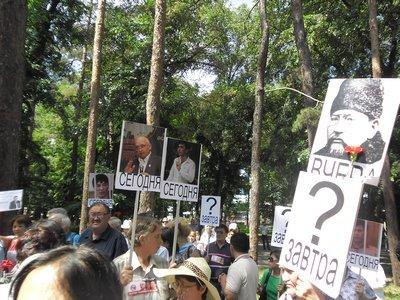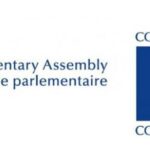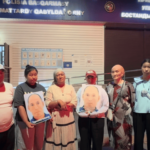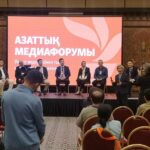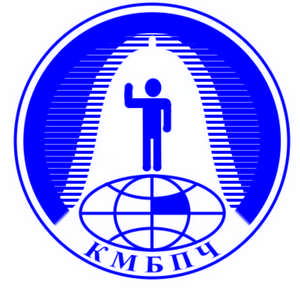The Kazakh government is refusing to allow the May 31 demonstration in tribute to the victims of political repression and famine during Stalin’s reign. Worse still, several people across the country have been arbitrarily arrested simply for trying to pay tribute to the victims of political repression suffered by Kazakhs during the Stalinist era. Although this day has been a national day of mourning since 1997.
Each year on May 31, Kazakhstan officially observes the Day of Remembrance for the Victims of Political Repressions and Famine. This date is meant to honor the immense suffering endured under the Soviet regime — forced collectivization, the steppe famine, and Stalinist purges.
However, in practice, public remembrance is met with repression. No authorized gatherings, blocked websites, threats, and arrests — commemorating the past has become an act of civil disobedience. Between the ghosts of the past and today’s political prisoners, Kazakhstan seems to be falling back into the very silence it claims to denounce.
Established in 1997, this official memorial day was intended to acknowledge the historical trauma inflicted on the nation. One of the most devastating events, the 1932–1933 famine, claimed the lives of around two million people, nearly one-third of the Kazakh population at the time.
The famine also had a lasting demographic impact: before it, Kazakhs made up approximately 60% of the republic’s population. In its aftermath, that share dropped to around 38%, making Kazakhs a minority in their own land. Only after the country gained independence in 1991 did Kazakhs once again become the majority population.
Between 1921 and 1954, over 100,000 people were convicted in Kazakhstan, with 25,000 executed — many of them the brightest minds of the national intelligentsia.
Behind Institutional Recognition, a Far More Disturbing Reality
Despite the official recognition, the reality is much more unsettling: in practice, citizens are not allowed to commemorate. Each year, requests for peaceful gatherings are either rejected, buried under technicalities, or ignored altogether.
In 2025, just like in previous years, proposals for marches and citizen-led ceremonies to honor the victims were overwhelmingly turned down — even though Kazakh citizens share the same historical wounds as their political leaders. In cities like Karaganda, Almaty, Aktobe, Aksay, Astana, Pavlodar, Semey, Shymkent, Petropavlovsk, Ust-Kamenogorsk, and Uralsk, the same scenario played out again and again.
The justifications vary: some applications are denied because of “cultural events already scheduled” at the requested locations, others because of “landscaping works” supposedly taking place on the same day. In some cases, authorities cite an “absence of a specified regulation” or a “lack of consent for the processing of personal data” in the application forms.
Sometimes, no justification is given at all. Citizens receive a blunt refusal, with no recourse or appeal available. And for those who challenge the decision or try to persist, administrative or police repression quickly follows.
While it is officially possible to request permission to protest by reserving a designated protest area through the Akimat (City Administration), the process is effectively obstructed. No matter what date, time, or location is selected — be it Mahatma Gandhi Park, Sary Arka Square, or Shevchenko Street in Almaty city — every reservation attempt ends with the same message: “Location already reserved.” Officially, These Sites Are Taken. But on the Ground, There’s Nothing. No events. No crowds. No construction work.Just empty spaces. The same thing is happening in other cities across the country
Several people have been arrested for attempting to organize demonstrations. For example, in Karaganda, Bakytzhan Zhanseitov was sentenced to 15 days in prison for violating assembly regulations, and Bolatbek Tokmyrza is currently on trial for organizing events without official permission — even though the right to assemble is guaranteed to Kazakh citizens by the Constitution. Several other activists in other cities were arrested on made-up grounds.
Constitution Trampled
Article 32 of the Constitution of Kazakhstan is clear: “Citizens of the Republic of Kazakhstan shall have the right to peacefully and unarmedly assemble, hold meetings, rallies, demonstrations, marches, and pickets.”
In theory, this right can be restricted “in the interests of state security.” But in this case, there is no threat, no risk, no public disorder. The refusal to allow commemoration is, by its very nature, an anti-democratic instrument.
Commemoration That Has Become Embarrassing for the Current Authorities
May 31st It also highlights a very current reality: in the country, citizens continue to be imprisoned for daring to protest or express political opposition. Officially, they are charged with minor offenses or disturbing public order, but in truth, their “crime” is often simply attempting to exercise fundamental rights such as freedom of expression or assembly.
This gathering is also an opportunity to prevent future arbitrary arrests on political ground but also to pay tribute to these Kazakh activists who are currently victims of political repression. In fact, The Council of Experts of Human Rights Defenders of Kazakhstan has reported that for today 31 people are convicted on political ground. Since independence, hundreds of Kazakhstanis have been imprisoned for political reasons.


